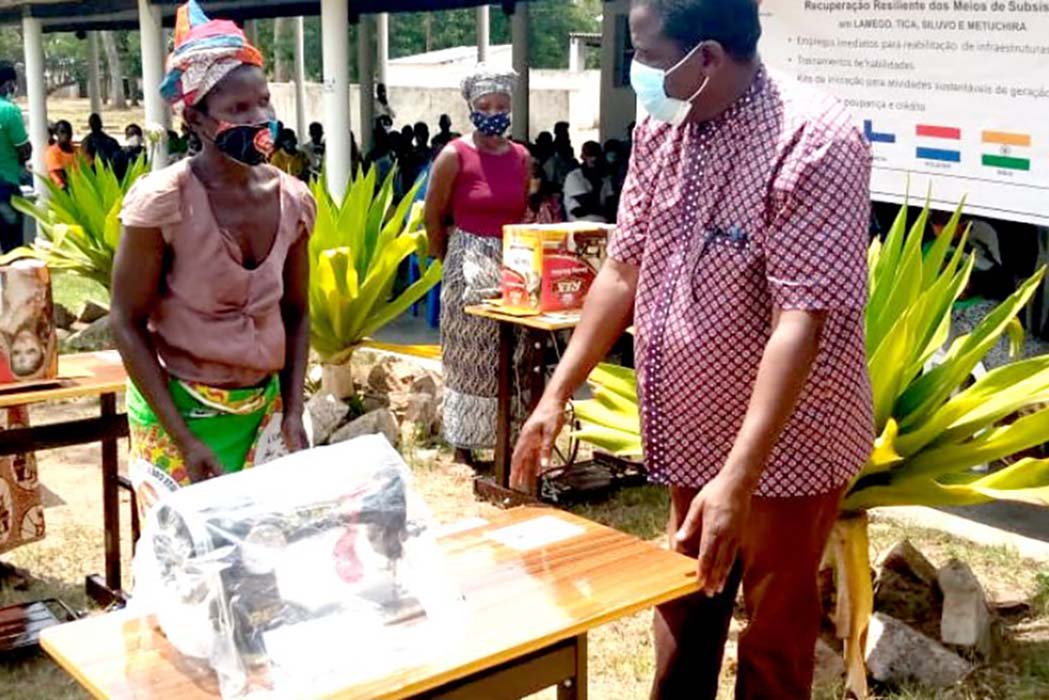The Resilient Livelihood Recovery Project, a program UNDP and the Mozambican government and implemented, amongst others, by ADPP in coordination with the Office of Post-cyclone Reconstruction (GREPOC), carried out this week, under the Recovery Mechanism (MRF), the delivery of self-employment starter kits to thirty women’s groups composed of ten people each.

The self-employment starter kits were distributed as payment for the temporary jobs performed by these groups of women consist of a total of thirty bales of second-hand clothes and an equal number of sewing machines. After training in entrepreneurship and sewing techniques, the bales will be sold in the agricultural markets of Tica, Lamego market, Metuchira market and other local markets and, in parallel, masks and other items produced through the sewing machines will be sold.
Nhamatanda District Administrator, Tomé José, who praised in his speech the role that ADPP and its partners play in the emancipation of rural women, especially in the post-cyclone IDAI recovery phase, directed the kits distribution ceremony.
“ADPP has always been present in the economic recovery of families affected by Cyclone IDAI, from the earliest moments providing the necessary support through the distribution of seeds, construction materials, food products and other goods, and today once again reaffirms its commitment by supporting through the delivery of thirty sewing machines and 30 bales of clothing, in addition to the training that the approximately three hundred women have undergone in entrepreneurship and micro-business.
This time, we recommend a good use of the work equipment now received and we hope there will be a good income in order to leverage the economy within the groups as well as their families” – said the Administrator.
For Emílio Navaia, coordinator of the project, the delivery of the kits to the women’s groups will contribute to generating income and improving their family economy, bringing more and more changes in living standards, because with the funds raised from their businesses they will be able to start acquiring seeds for the practice of agriculture.
Maria Bande, member of the “Jhon Segredo” association, speaking on behalf of all the women’s groups that have received the incentives, promises to ensure good management of their businesses and achieve the success they so desired.
“With the training we have received from ADPP and the bales we have received today, we are confident that we will sell and multiply into two or more bales in each group and increasingly expand our business. This incentive will contribute significantly to help our children’s school expenses and to cover other needs in our homes” – guaranteed Maria Bande.
The actions of the Recovery Mechanism are financed by the European Union, Canada, China, Finland, India, the Netherlands, Norway, with UNDP being the implementation manager while ADPP and other non-governmental organizations are implementing partners.

